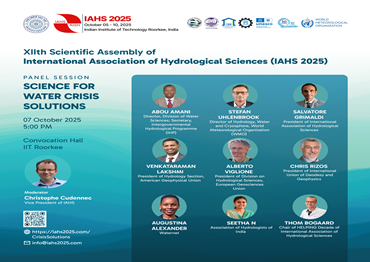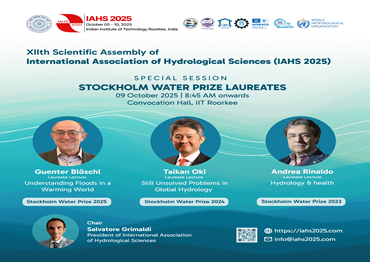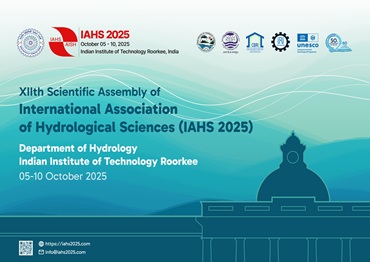Unlocking Advances in Numerical Solutions for Hydrological Models
Side Event
Unlocking Advances in Numerical Solutions for Hydrological Models
About Event:
Wednesday, October 08, 2025 (18:00-19:30) Timing (IST)
With mounting pressure on scarce water resources, hydrological models including rainfall-runoff, routing, river system and hydrodynamic models are becoming more and more complex to incorporate a broad range of processes. These models are now required to simulate surface water dynamics, but also incorporate groundwater-surface water interactions, floodplain storage, vegetation growth, water extractions or ecological health indicators. At the same time, models are expected to run at short time steps (e.g. hourly), incorporate a broad range of climate scenarios and generate uncertainty estimates via Monte Carlo sampling.
Achieving all these goals requires advanced numerical schemes that solve complex model equations while remaining fast and stable under extreme hydro-climate conditions. Numerical improvements benefit both classical models formulated as differential equations and machine learning models, which pose significant challenges in terms of formulation and calibration.
In addition, despite its fundamental importance in hydrology, numerical analysis is often perceived as an obscure subject by many practitioners, which limits the adoption of efficient algorithms and reduces model performance. Consequently, methods and tools to facilitate user training are of utmost importance to accelerate adoption and ensure steady improvement of water resources simulations.
This workshop invites participants to discuss the latest innovations in numerical approaches for hydrological models. Topics of interest include, but are not limited to:
- Software and techniques to accelerate hydrological and hydrodynamic model computations,
- Acceleration of machine learning model computations
- Flexible modelling frameworks
- Analytical and Numerical approaches to solve differential equations
- Case study of numerical issues in complex hydrological modelling
The workshop will gauge the interest of participants in editing a special issue on the topic.
Prerequisites: Advanced knowledge of hydrological models mathematical structure.
Expert Name: Julien Lerat, CSIRO Environment, Canberra, Australia
Maximum Number of Participants: 20


















